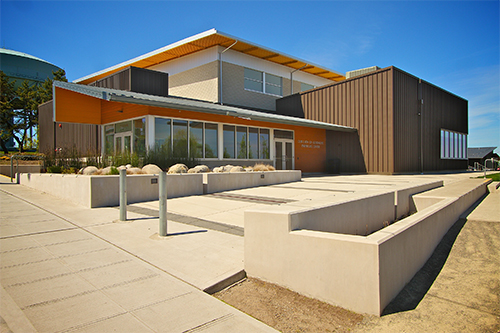
The classroom teacher and the library media specialist are actively involved in identifying the learning needs of students, developing teaching units, and guiding students’ progress in lifelong learning. The library media specialist facilitates activities that offer meaningful practice in using a variety of information resources. Below you can find a broad overview of the Library and literacy portion of our LIT program, per grade:
Kindergarten
Our focus for Kindergarten students is learning about the parts of a book: front cover, back cover, title page, author and illustrator, etc. in addition to book care. They read Washington’s Children’s Choice Picture Books and then work on retelling. Students learn how illustrations help to tell the stories and find personal connections to stories.
- Traditional Literature Genre Focus: Fables
First Grade
Our first graders also get to read Washington Children’s Choice Picture Books and participate in the voting process. They continue their working on retelling stories using details from the text and learn how authors and illustrators work together to tell stories. Students are introduced to call numbers and how to use shelf markers to selecting the “right” book.
- Traditional Literature Genre Focus: Mythology, and “Pourquoi” tales.
Second Grade
Like our first graders, our Second Grade students also get to read Washington Children’s Choice Picture Books and participate in the voting process. However, they now work on predicting, in addition to retelling stories using details from the text. They continue discovering how authors and illustrators work together to tell stories and learn using call numbers to find books on the shelves as well as basic library design (fiction, nonfiction, picture books and graphic novels). They continue learning to select the “right” book.
- Traditional Literature Genre Focus: Fairy Tales traditional and twisted tales
Third Grade
Just as our first and second graders, our Third Grade students also get to read Washington Children’s Choice Picture Books and participate in the voting process. They learn to identify key details from the text, and continue learning to use call numbers to find books on the shelves as well as basic library design (fiction, nonfiction, picture books and graphic novels). They continue learning to selecting the “right” book.
- Traditional Literature Genre Focus: Tall tales and legends. Introduction to Destiny Discover Online Library Catalog.
Fourth Grade
Students learn to read an Atlas. They study the different literature genres and explore the nonfiction text features. They are introduced to reading nonfiction text with effective note-taking, as well as using graphic organizers for that.
- Traditional Literature Genre Focus: Battle of the Books – Year 1.
Fifth Grade
They are introduced to the “Big6” Research strategies (Task definition / Information seeking / Location and access / Use of information / Synthesis /Evaluation). They also get learn to refine their Google search strategies, citing sources, identifying bias, evaluating credibility of online sources, using primary source materials and so much more. Fifth graders are introduced to the Dewey Decimal System, a system to put books in order by subject, often used in public libraries and schools in the United States and other countries. They explore different techniques for the effective use of library materials.
- Traditional Literature Genre Focus: Battle of the Books
Middle School (Grades 6th through 8th)
At the middle school level particularly, we focus on developing even more engaging lesson plans and help identify high-interest books for students. We also encourage students to pursue their interests through short research projects and special book selections. Students focus on using the Destiny Discover Online Library system, as well as the Seattle Public Library databases for research. They continue participating in the Battle of the Books competition and are constantly motivated to explore and read more.
